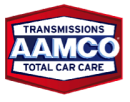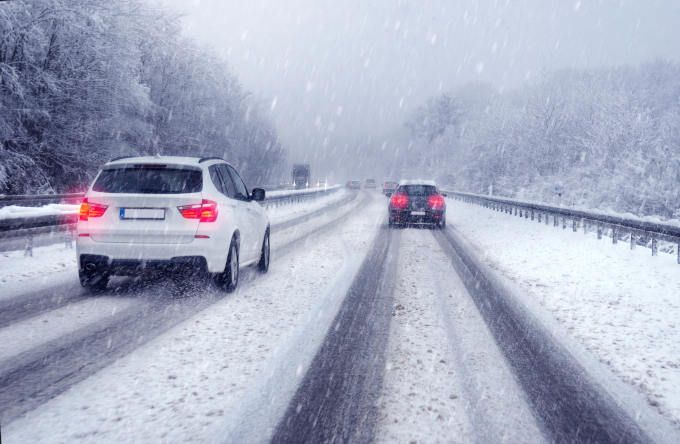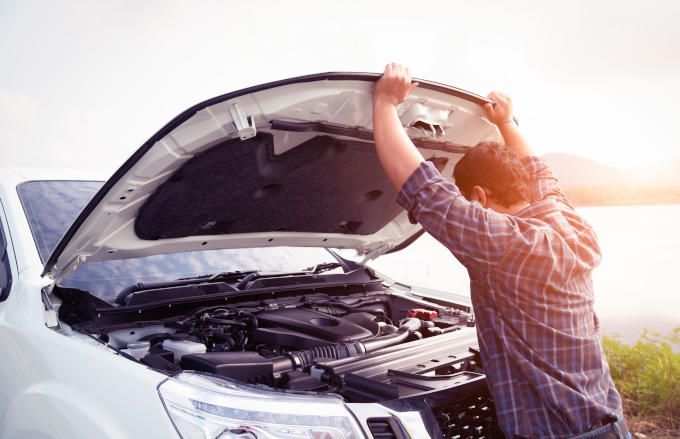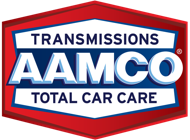Pain at the Pump? Check Out These Tips to Increase Your Fuel Economy
Gas prices are high, but these fuel efficiency tips can keep your costs down!
It's no shock that NY/NJ/CT region drivers use more gas than they'd like. Gas prices have skyrocketed recently, with supply disruptions and geopolitical tensions receiving most of the blame.
But what if we told you there's more to the high gas prices than meets the eye? Much of the pain at the pump can be chalked up to poor vehicle maintenance and driver behaviors.
That's right—keeping your vehicle in top shape can improve your fuel economy and save money in the long run. This guide will look at ways to keep your vehicle running smoothly and improve your gas mileage.
Why Your Fuel Economy May Be Struggling
Fuel economy refers to the number of miles you can get per gallon of gasoline. The higher your fuel economy, the less money you'll spend on gas overall.
Three big factors can affect your fuel economy:
1. The Way You Drive
How you drive can impact your fuel economy. Sudden stops and starts can use up more gas than smooth acceleration. Going slow is better than stopping. This is because it takes more energy to get a vehicle moving from a complete stop.
Additionally, driving at high speeds requires more gasoline than driving at lower speeds. Wind resistance increases as your speed increases, making it harder for your vehicle to move forward. Sticking close to 60 mph is best.
2. The Condition of Your Car
The condition of your vehicle also plays a role in fuel economy. If your vehicle is well-maintained, you can expect it to run more efficiently and use less gas.
But if your vehicle needs repair, it may use more gas than necessary. There are several components in your car or truck that, if not working properly, can have an impact on fuel economy.
These include:
- Clean oil: Maintaining your oil with oil changes per the manufacturer’s recommendations will ensure the oil properly lubricates moving parts to maintain fuel economy and the life of your engine.
- Transmission is slipping: If your transmission is slipping or parts of your transmission are not engaging properly, this could be a significant cause of a decrease in fuel economy and even cause an overheating condition. Transmission wear happens gradually, and you may not notice it immediately, but fuel economy will suffer from working the engine harder than it should.
- Spark plugs: A dirty or failed spark plug can cause your engine to misfire, which wastes gas.
- Oxygen sensor: A faulty oxygen sensor can cause your vehicle to run too lean or too rich, leading to decreased fuel economy.
- Catalytic converter: A clogged or damaged catalytic converter can prevent your car from properly removing the exhaust efficiently, leading to decreased fuel economy.
- Fuel injectors: Fuel injectors that are dirty or damaged can prevent your vehicle from getting the proper amount of fuel—whether too much or too little—leading to decreased fuel economy.
- Clogged air filter: If the air filter is dirty, your engine gets less air, which can impact your gas mileage by up to 10 %. This is also bad news for engine performance and life since your engine needs oxygen for fuel combustion and clean air for less wear on expensive parts for increased longevity.
- Wheel alignment: If the wheels and tires are out of alignment, this will cause the tires to drag across the pavement and not track smoothly to minimize rolling resistance and increase full economy.
- Suspension system is worn or weak: Loose suspension parts or worn struts or shocks will also decrease mileage as the vehicle works extra hard to maintain a straight and stable drive as you roll down the road. Struts keep the wheels from bouncing, and suspension parts keep the chassis in alignment. These all are essential for good fuel economy.
- Worn, low or damaged tires: Tires keep your car attached to the pavement and are essential for steering and stopping. A low or worn tire can also decrease fuel economy if they do not perform properly.
It's always a good idea to take your vehicle in for regular maintenance to ensure all of these components are in good working order. This will help you avoid potential problems down the road and keep your vehicle running as efficiently as possible.
Where You Drive
Heavy, stop-and-go traffic, especially around NYC and surrounding areas, can be a killer for good fuel economy. While not much can be done about traffic patterns in metropolitan areas, using GPS for the fastest routes or researching when fewer drivers are on the road can help fuel economy and make for less stressful driving.
Tell-Tale Signs Your Fuel Economy Is Struggling
There are a few warning signs that your car may not run as efficiently as it could be, leading to decreased fuel economy. These include:
- Filling the tank more: If you've noticed you’re visiting the pump more than usual with no change in your routine, this could be a sign that your vehicle is not running as efficiently as it should be.
- Decreased power: If you notice that your vehicle doesn't have the same pep as it used to, this could be a sign that something is wrong. This could be caused by various factors, including spark plugs that need to be replaced, a clogged catalytic converter, or a slipping transmission.
- Increased engine temperature: If your engine is running hot, this could be a sign of a problem. The culprit could be a dirty air filter, low or dirty oil, or something more serious, such as a head gasket leak.
- Misfiring engine: An engine that misfires wastes gas, leading to decreased fuel economy. This could be caused by a number of things, including spark plugs that need to be replaced or a fuel injector that is clogged.
If you notice any of these warning signs, taking your vehicle in for a tune-up or check-up is a good idea. This will help you avoid potential problems down the road and keep your vehicle running as efficiently as possible.
Tips to Improve Fuel Economy
So what can you do to give yourself a break from high fuel expenses? Here are some top tips that NY Tri-State drivers can use to improve their fuel economy:
1. Maintain Your Vehicle
Keeping your vehicle well-maintained is key to maintaining good fuel economy. This means regularly checking your oil level, changing your oil when necessary, and checking other fluids such as coolant and brake fluid. You should also have your tires rotated and aligned regularly.
Tire pressure can be a significant factor in fuel efficiency. Aside from safety risks, such as excessive, uneven wear and a higher likelihood of a blowout, low tire pressure will also lower average gas mileage because more tire on the road increases friction, so your vehicle has to use more energy. For correct tire recommendations for your vehicle, refer to your owner’s manual or the sticker on the driver's door jamb.
2. Follow the Speed Limit
Shaving a few minutes off your commute doesn't equate to significant savings at the pump. Driving just 5 mph over the speed limit can decrease your fuel economy by as much as 7%. So do yourself a favor and stick to the speed limit to improve your gas mileage.
3. Use Cruise Control
Taking an extended trip outside the city? If so, take advantage of your vehicle's cruise control feature. This can help you maintain a consistent speed and improve your fuel economy.
4. Avoid Aggressive Driving
We get it. Tri-State traffic can be frustrating. But take a deep breath, resist the urge to speed up, and avoid hard braking. Aggressive driving wastes gas and can decrease your fuel economy by as much as 33%.
5. Don't Idle Your Car
When you're stopped in traffic or at a red light, it's tempting to leave your car running. But did you know that idling for just 10 seconds can use the same amount of gas as restarting your vehicle? So save yourself some money and turn off your engine when stopped.
Keep Fuel Costs Down with Routine Maintenance
There's no magic solution to high gas prices. But by following the tips above, you can help improve your fuel economy and save money at the pump.
And remember, one of the best ways to maintain good fuel economy is to have your car regularly serviced and maintained. Make sure to schedule an appointment at your local AAMCO NY/NJ/CT Center today and learn how easy it is to keep your vehicle running smoothly and efficiently for optimal gas mileage.
Expect the Best
AAMCO has over 60 years of experience delivering total car care, from transmissions to tune-ups for more than 20 million vehicles. Customers depend on us for:
- Exceptional customer service
- The latest technology for diagnosis and repair
- Expert technicians who “fix it right the first time.”
- Best warranty coverage available
- Convenient payment options with up to 12 months of interest-free payments
AAMCO Centers of the NY/NJ/CT Tri-State Area represent trust, quality, and value.
Share




